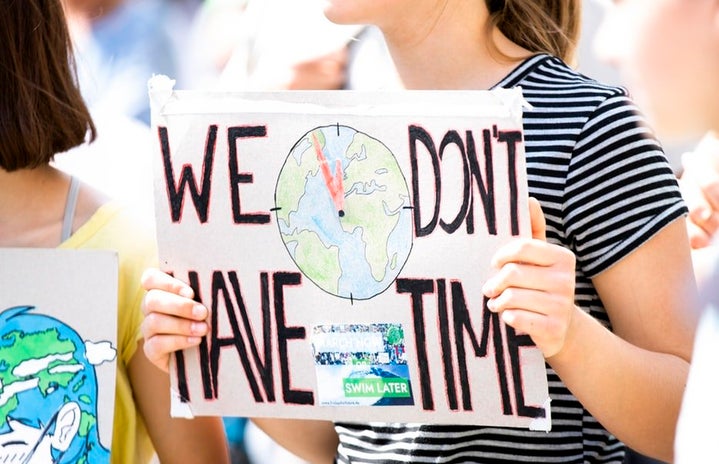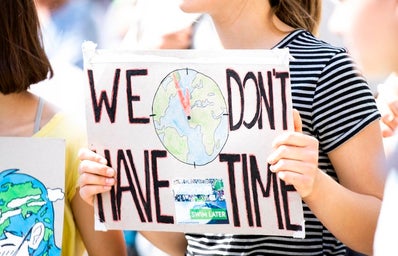“In Solidarity for a Green World” was the main discussion topic of COP-29 (29th United Nations Conference about Climate Changes), which took place in Baku, Azerbaijan capital and happened from November 11th to 24th.
The event looked to increase ambition and enable action by uniting almost 200 countries to negotiate what were the best solutions to revert the current scenario, composed by:
- ‘Global ebullition’: Earth is 1,1ºC hotter than the last decades on XIX century;
- Greenhouse gases are in the highest levels in two million years;
- Longer drought periods and torrential rains when it happens;
- At least 10.000 species are facing extinction every year, according to WWF;
- People are increasingly suffering from respiratory diseases, allergies, heat strokes, innutrition and hunger.
Why was Azerbaijan chosen to host COP-29?
Worldwide recognized as the “cradle of the modern fossil fuel industry”, Azerbaijan is a symbol of the importance of the anti-fossil fuel agenda. Its economy is mainly based on petroleum and natural gas exportation, but promised to reduce 40% of greenhouse gas emissions by 2050, as well as increasing the capacity of producing renewable energy by 30% until 2030.
“Azerbaijan is committed to developing its renewable energy potential, which is an important part of the country’s plan to reduce greenhouse gas emissions by 40% by 2050. The country intends to increase renewable power capacity to 30% by 2030 and diversify its existing energy system to become a leader in green energy. Azerbaijan is committed to leading by example and will update its national targets in its next 1.5-aligned Nationally Determined Contribution”, states the COP29 website.
In addition to that, each member-country has the right of one vote in order to decide where COP will happen. In this year’s edition, Russia’s veto was responsible for the conclusion, as it rejected any European Union country. In this way, the option between Bulgaria, Armenia and Azerbaijan became just two, the last ones, and ended up with the last one after analysis about the democracy in the territories and persecutions when it comes to human rights defenders, even though both were in conflict about Nagorno-Karabakh.
“Being elected by unanimous decision as the host country for COP29 is really a big honour for us. We consider it as a sign of respect from the international community to Azerbaijan and what we are doing, in particular, in the area of green energy”
says Ilham Aliyev, president of the Republic of Azerbaijan.
Agreements made
The final agreement of COP-29 was the Baku Finance Goal of “1.3 trillion dollars of climate finance to the developing world each year”, according to the announcement made by Mukhtar Babayev, the COP-29 Presidency of Azerbaijan. However, it isn’t the only achievement of the Conference, but one of 30.
“They serve to complement existing initiatives and bring new, creative approaches to climate challenges.” To do so, governments – such as U.S., China, EU, UAE, U.K., Brazil, Canada and Nigeria – compromised to use digital tools to reduce emissions, put in the spotlight the necessity of debating the impacts of climate change on health in future conferences, endorsed the targeting above the methane gas emanation of organic waste contributing to the implementation of the Global Methane Pledge and developing the Baku Harmoniya Climate Initiative for Farmers, that will help these professionals to access finance.
Furthermore, urban planning and climate finance was promoted, in conjunction with philanthropic organisations and bilateral donors. Also, sustainable tourism, actions to combat causes and impacts on water reserves and transparency of carbon markets operations were agreed. Moreover, “over 50 shipping industry actors agreed to accelerate zero and near-zero emission fuels by 2030, translating to at least 5 million tonnes of green hydrogen” and U.K. supported “clean cooking for 10 million people across Sub-Saharan Africa, South Asia, and the Indo-Pacific to leave coal and wood cooking behind” as part of a 193 million dollars package.
These compromises, nonetheless, seem to be very abstract, but it’s possible to check if it is being put in practice by Global Climate Action Portal and by official governmental reports.
__________
The article above was edited by Maria Clara Polcan.
Like this type of content? Check out Her Campus Cásper Líbero for more.


